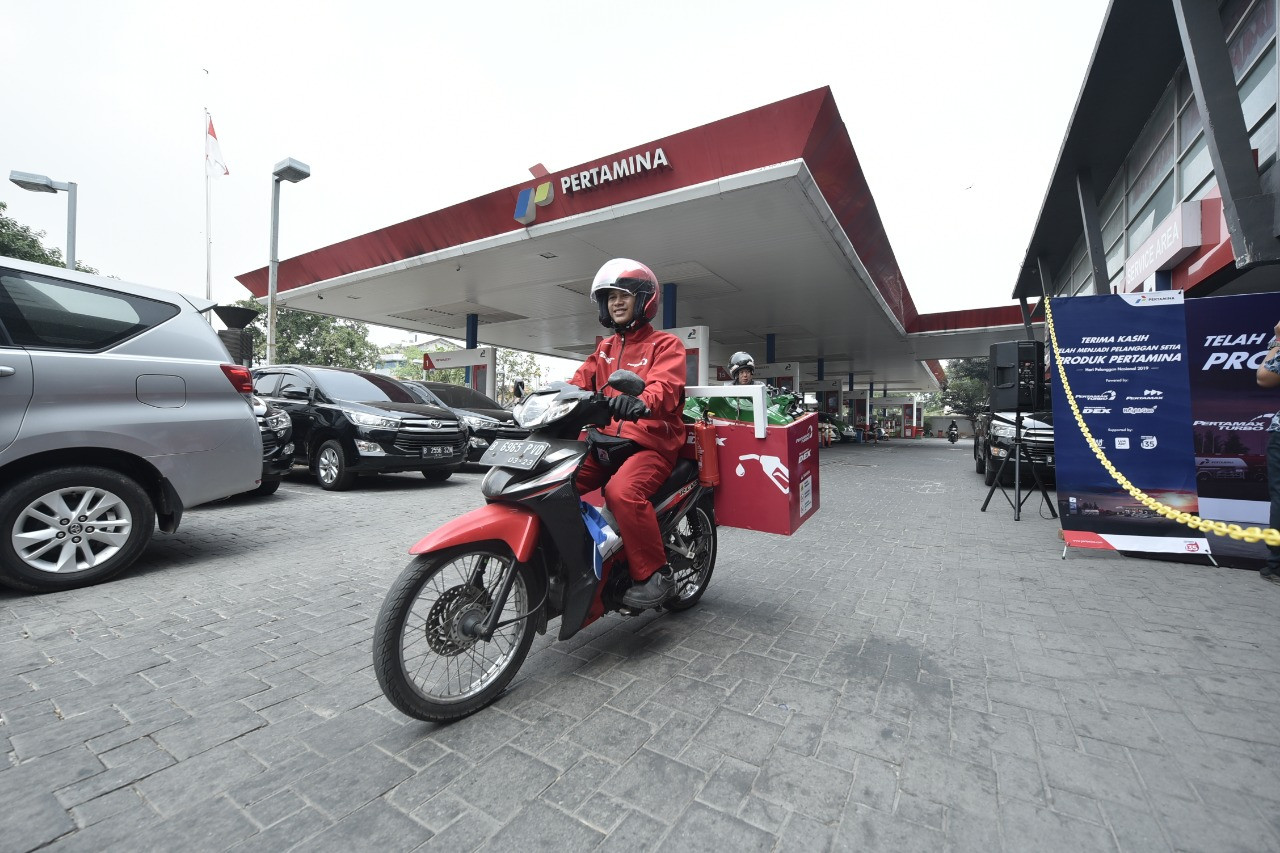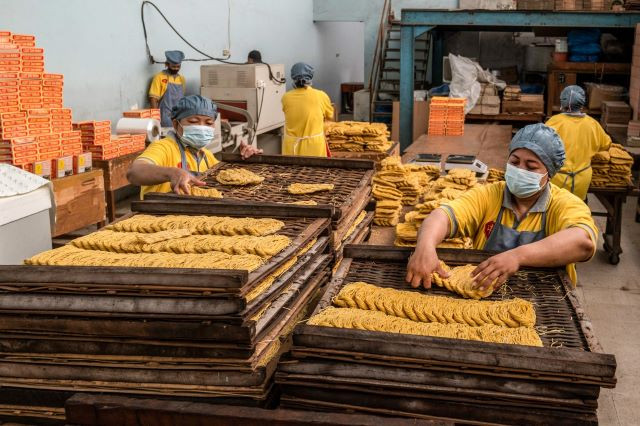Popular Reads
Top Results
Can't find what you're looking for?
View all search resultsPopular Reads
Top Results
Can't find what you're looking for?
View all search resultsDespite looming deadline, Pertamina’s clean fuel goals remain distant
Pertamina, which operates over 90 percent of Indonesia’s gas stations, is legally bound to stop producing its best-selling but pollutive diesel fuel, Solar, by April 2021.
Change text size
Gift Premium Articles
to Anyone
 State-owned oil and gas giant Pertamina has reaffirmed plans to phase out pollutive fuels but a top executive has made clear that the company will not do so until certain multibillion-dollar projects are completed. (Pertamina/Pertamina)
State-owned oil and gas giant Pertamina has reaffirmed plans to phase out pollutive fuels but a top executive has made clear that the company will not do so until certain multibillion-dollar projects are completed. (Pertamina/Pertamina)
S
tate-owned oil and gas giant Pertamina has reaffirmed plans to phase out pollutive fuels but a top executive has made clear that the company will not do so until certain multibillion-dollar projects are completed.
Pertamina, which operates over 90 percent of Indonesia’s gas stations, is legally bound to stop producing its best-selling but pollutive diesel fuel, Solar, by April 2021. It stopped the production of gasoline brand Premium in October 2018, as required by Environment and Forestry Ministry (KLHK) Regulation No. 20/2017 on motor vehicle emission limits.
Read also: Airvisual: Jakarta declared world's most polluted city on Thursday afternoon
The two brands do not meet regulatory emissions standards, which are pegged to the Euro 4 standard, a widely adopted benchmark developed by the European Union.
“The biggest issue here is breathing problems, especially during the dry season in big cities or in industrial areas,” Dwi Saung, a clean energy campaigner with the Indonesian Forum for the Environment (Walhi), told The Jakarta Post on Monday.
Pertamina president director Nicke Widyawati acknowledged on June 29 that the company had “actually been obligated to use Euro 5 since 2017” but said, “We would have to import 100 percent if we were forced to sell Euro 5.”
Her statement reflects Pertamina’s aversion to importing additional oil, per Energy and Mineral Resources (ESDM) Ministry policy.
Oil and gas imports are a leading contributor to Indonesia’s gaping trade deficit, which has put pressure on the rupiah exchange rate. Fossil fuels accounted for 15 percent of total imports last year, Statistics Indonesia (BPS) data shows.
Jakarta was declared to have the worst air pollution of any capital city in the world in August of last year, according to data from AirVisual, Switzerland’s privately-funded air quality monitoring platform.
Pertamina plans to produce Euro 4 and Euro 5 fuel domestically through six refinery megaprojects that will double Indonesia’s fuel output to 2 million barrels per day. The facilities are scheduled for completion between 2022 and 2027.
“If we don’t build them, we will import fuel every day,” said Nicke.
However, the six refineries are facing hurdles such as land permit issues and financing problems. Two of the projects were put on hold after their partners, Oman's Overseas Oil and Gas LLC (OOG) and Saudi Arabia’s Aramco, pulled out.
Oil refineries have a slim internal rate of return (IRR), which is unattractive to many foreign investors. Pertamina is developing petrochemical facilities alongside the refineries to improve the projects’ financial appeal, said Ignatius Tallulembang, president director of PT Kilang Pertamina Internasional (KPI).
Read also: Pertamina loses partners, eyes new investors for refinery megaprojects
“Oil refineries alone have marginal profits. IRRs are just enough. Foreign inventors wanted IRRs of 12 or 13 percent. Saudi Aramco wanted 15 percent,” he told House of Representative (DPR) lawmakers in Jakarta on Wednesday. He did not state refineries’ expected IRR.
Despite the challenges, Environment Ministry air pollution control director Dasrul Chaniago maintained that Indonesia was “still on target to enter Euro 5”.
“But looking at how other countries are on Euro 5, 6 and even 7, Indonesia is better off jumping to Euro 6,” he said at a webinar hosted by the Indonesian Consumers Foundation (YLKI) in June.









